Tennessee's 1796 Constitution stated:
"Article VIII, Section II: No person who denies the being of God, or a future state of rewards and punishments, shall hold any office in the civil department of this State."

Running off to live with the Cherokee, 16-year-old
Sam Houston was adopted by Chief Oolooteka and given the name
"Raven."
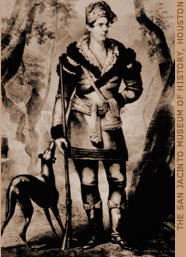
Three years later,
Sam Houston returned to Knox County, Tennessee, and opened a one-room schoolhouse - the first school built in the State.
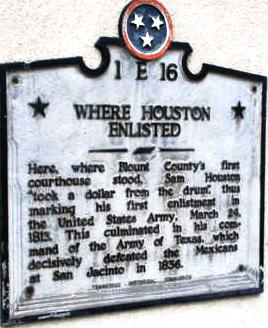
He joined the army and fought in the
War of 1812.
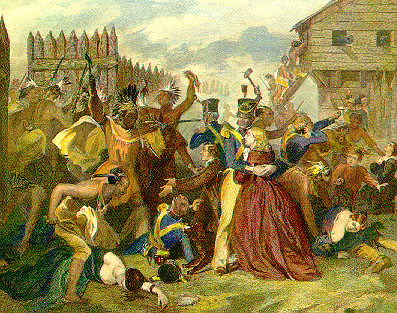 "Red Stick" Creek Indians
"Red Stick" Creek Indians were supplied with arms from the British. They
massacred over 500 men, women and children at Fort Mims, Alabama.
General Andrew Jackson was sent south in response.
 Sam Houston
Sam Houston fought under General Jackson against the Red Stick Creek Indians at the
Battle of Horseshoe Bend on March 27, 1814.
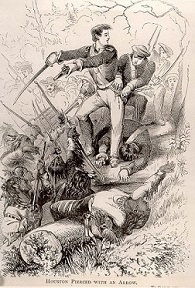
An arrow struck
Sam Houston near his upper thigh. He had the arrow removed, was bandaged, then returned to the fight.
He was struck again with bullets in his shoulder and arm.
General Andrew Jackson took notice of
Sam Houston and began mentoring him.
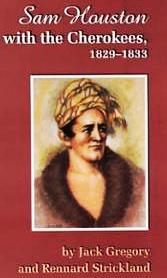
In 1818,
Sam Houston, wearing Indian dress, led a delegation of
Cherokee to Washington, D.C., to meet with
President James Monroe.
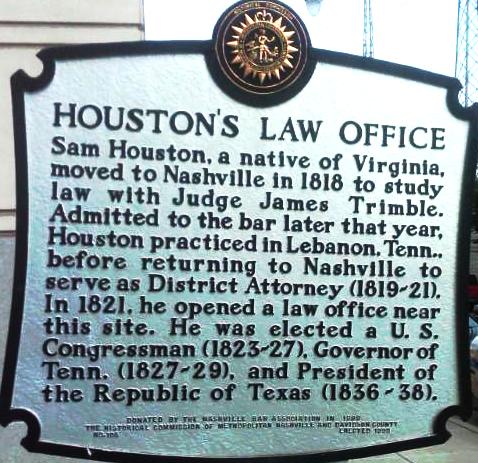 Sam Houston
Sam Houston studied law under Judge James Trimble, passed the bar, and opened up a legal practice in Lebanon, Tennessee.
 Houston
Houston was appointed the local prosecutor and was given a command in the state militia.

Sam Houston was elected to
Congress in 1823, and became
Governor of Tennessee in 1827.
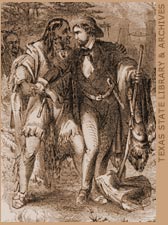
After a short failed marriage in 1829,
Sam Houston resigned and moved to the Arkansas Territory where he lived among the Cherokee Tribe.
Understanding that Cherokee needed to be a "nation" in order for the U.S. government to honor a treaty,
Sam Houston helped the Cherokee compose a constitution.
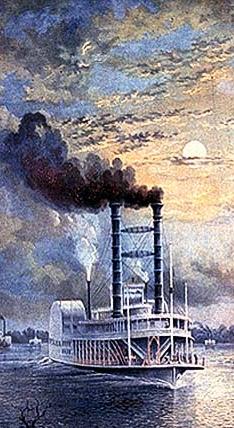
On December 27, 1831,
Houston was a passenger on a steamboat where he met French writer
Alexis de Tocqueville who was traveling throughout the United States.
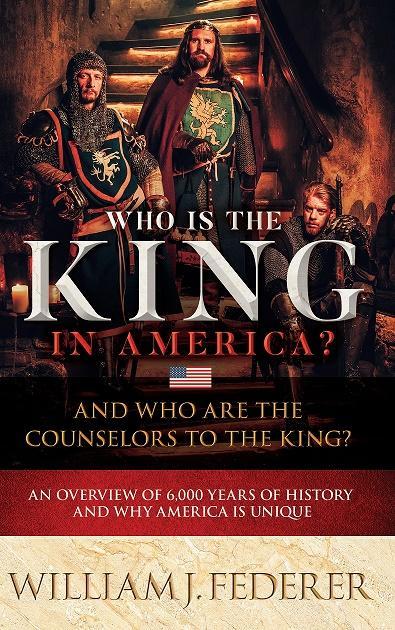 Who is the King in America? -And Who are the Counselors to the King? DVD
Who is the King in America? -And Who are the Counselors to the King? DVD
...
General Antonio Lopez Santa Anna, who having overturned the constitution of his country, now offers, as the cruel alternative, either abandon our homes acquired by so many privations, or submit to the most intolerable of all tyranny ...
(His government) denies us the right of worshiping the Almighty according to the dictates of our own conscience, by the support of a National Religion, calculated to promote the temporal interest of its human functionaries, rather than the glory of the true and living God.
It has demanded us to deliver up our arms, which are essential to our defense -- the rightful property of freemen -- and formidable only to tyrannical governments ..."
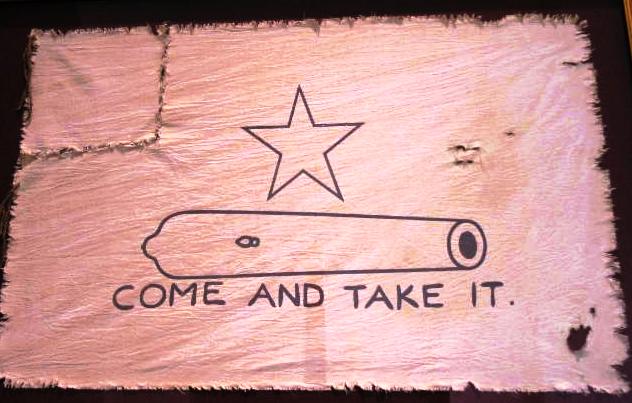
The
Texas Declaration ended:
"Conscious of the rectitude of our intentions, we fearlessly and confidently commit the issue to the decision of the
Supreme Arbiter of the Destinies of Nations."
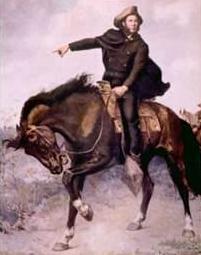 Sam Houston
Sam Houston was made
Commander-in-Chief to fight Santa Anna, culminating in the
Battle of San Jacinto, April 21, 1836.
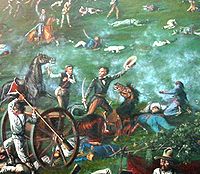
One report was that
Sam Houston had three horses shot from under him, but he kept fighting.
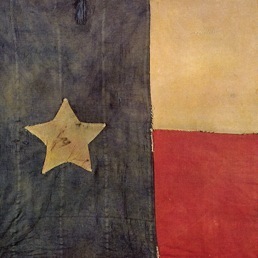
James Monroe Hill wrote in a letter, October 20, 1895 (
McArdle Notebooks-The Battle of San Jacinto, Texas State Library and Archives):
"As I passed down the flat lands I saw
General Houston on a different horse. I afterward heard that it was the third one, two having been killed under him. I did not know then that he himself was wounded."
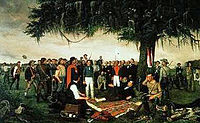
A bullet had shattered
Sam Houston's ankle, yet he continued the fierce attack.
In the 18 minute battle, 900 Texans had defeated 1500 Mexicans.

Later that year, September 4, 1836,
President Andrew Jackson wrote to General Antonio Lopez de Santa Anna:
"Sir: I have the honor to acknowledge the receipt of your letter of the 4th day of July last, which had been forwarded to me by
General Samuel Houston ...
If ... Mexico should signify her willingness to avail herself of our good offices in bringing about the desirable result you have described, nothing could give me more pleasure than to devote my best services to it.
To be instrumental in terminating the evils of civil war and in substituting in their stead the blessings of peace is a divine privilege ...
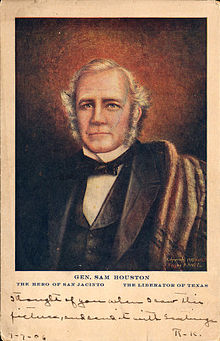
... Your letter, and that of
General Samuel Houston, commander in chief of the Texan army, will be made the basis of an early interview with the Mexican minister at Washington ...
In the meantime I hope
Mexico and Texas, feeling that war is the greatest of calamities, will pause before another campaign is undertaken and can add to the number of those scenes of bloodshed which have already marked the progress of their contest and have given so much pain to
their Christian friends throughout the world."
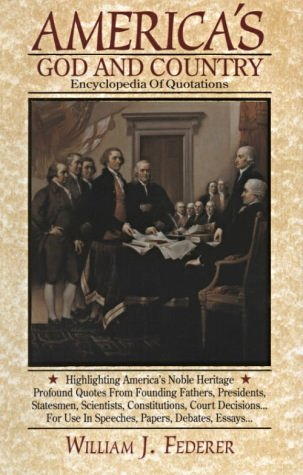 Get the book America's God and Country Encyclopedia of Quotations
Get the book America's God and Country Encyclopedia of Quotations
On OCTOBER 22, 1836,
General Sam Houston was sworn in as the first
President of the Republic of Texas.
In 1845, Texas joined the Union, being the 28th State, and the second largest in size.

The
Texas Constitution, August 27, 1845, stated:
"We, the people of the Republic of Texas acknowledging, with gratitude, the grace and beneficence of God ...
All men have a natural and indefeasible right to
worship God according to the dictates of their own consciences ...
Members of the Legislature ... shall take the following oath ... So Help Me God ...
Every citizen shall have
the right to keep and bears arms in the lawful defense of himself or the State."
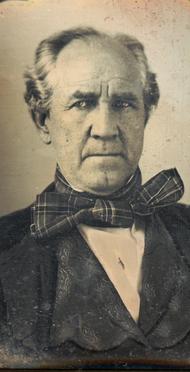
In 1846,
Sam Houston became the first U.S. Senator from Texas, and in 1859 he was elected Governor.
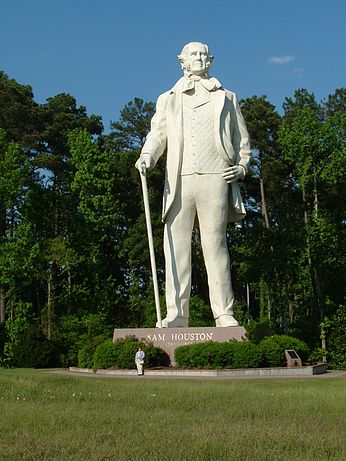 Sam Houston
Sam Houston was the only person to have been "elected" the governor of two different States.
In 1838, he received word that his Cherokee wife, Tiana, had died.
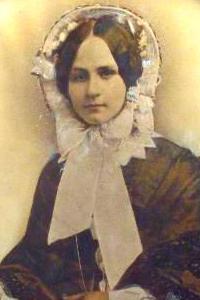
In 1840, at the age of 47, Sam Houston married 21-year-old
Margaret Moffette Lea of Alabama, and together they had eight children.
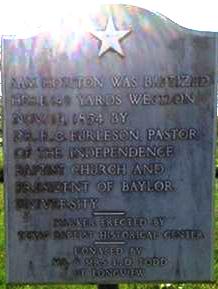 Margaret,
Margaret, with the help of her Baptist pastor
George Washington Baines, Sr., the great-grandfather of Lyndon Baines Johnson, convinced
Sam Houston to be baptized as a
Baptist in Little Rocky Creek on November 19, 1854.
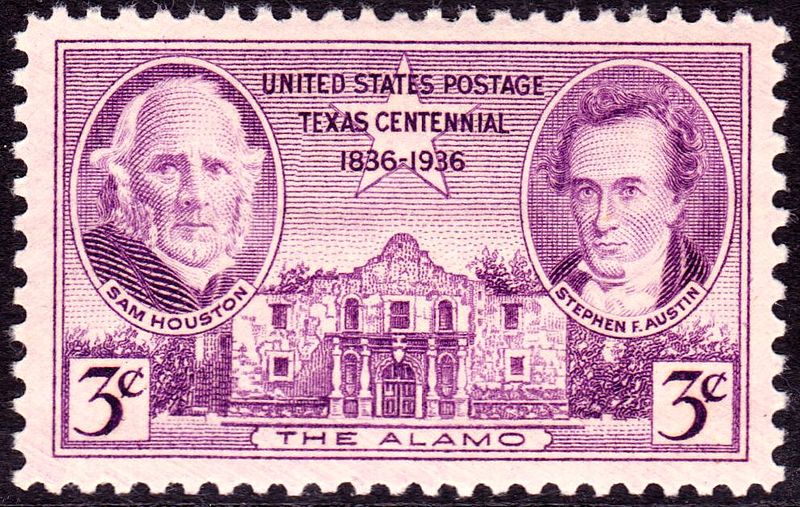
Governor
Sam Houston wanted to keep Texas out of the
Civil War, stating:
"I love Texas too well to bring civil strife and bloodshed upon her. To avert this calamity, I shall make no endeavor to maintain my authority as Chief Executive of this State, except by the peaceful exercise of my functions."
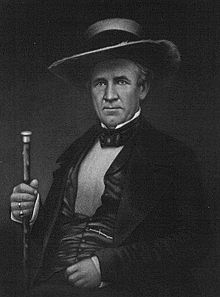
When
he refused to join the Confederacy, he was removed from office on March 16, 1861.
President Lincoln, through Union Col. Frederick W. Lander, offered
Sam Houston 50,000 Union troops to prevent Texas from joining the Confederacy.
Houston refused, stating: "Allow me to most respectfully decline any such assistance of the United States Government."
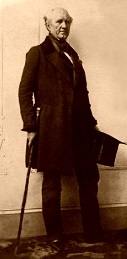
When asked why he did not join the Confederacy,
Houston told a crowd outside his Galveston hotel window, April 19, 1861:
"Let me tell you what is coming. After the sacrifice of countless millions of treasure and hundreds of thousands of lives, you may win Southern independence if God be not against you, but I doubt it.
I tell you that, while I believe with you in the doctrine of states rights, the North is determined to preserve this Union. They are not a fiery, impulsive people as you are, for they live in colder climates.
But when they begin to move in a given direction, they move with the steady momentum and perseverance of a mighty avalanche; and what I fear is, they will overwhelm the South."

The city of
Houston, Texas, the 4th largest city in the United States, is named for
Sam Houston.
Also named for him are:
a university;
a U.S. Army base;
five U.S. naval vessels;
a national forest;
a historical park,
a memorial museum,
an elementary school in Lebanon, TN;
a prominent roadside statue outside of Huntsville.

In defense of rights of conscience, Democrat Presidential Candidate
John F. Kennedy addressed the
Houston Ministerial Association, September 12, 1960:
"I believe in an America ... where religious liberty is so indivisible that an act against one church is treated as an act against all.
For, while this year it may be a Catholic against whom the finger of suspicion is pointed, in other years it has been, and may someday be again, a Jew - or a Quaker - or a Unitarian - or a Baptist.
It was Virginia's harassment of Baptist preachers ... that led to Jefferson's statute of religious freedom ...
I believe in an America ... where all men and all churches are treated as equal ...
I would not look with favor upon a President working to subvert the First Amendment's guarantees of
religious liberty."
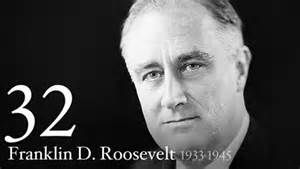 Religious liberty
Religious liberty has it roots in the Judeo-Christian belief that men are created equal in God's image, as
Franklin Roosevelt stated, January 6, 1942:
"We are inspired by a faith that goes back through all the years to the first chapter of the Book of Genesis: 'God created man in His own image.'"
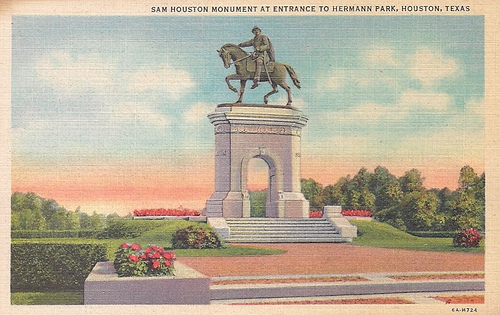 Religious liberty
Religious liberty includes "freedom of conscience," based on the concept that God is love and that He desires men and women to love Him back, "love the Lord your God with all your heart, soul, strength and mind."